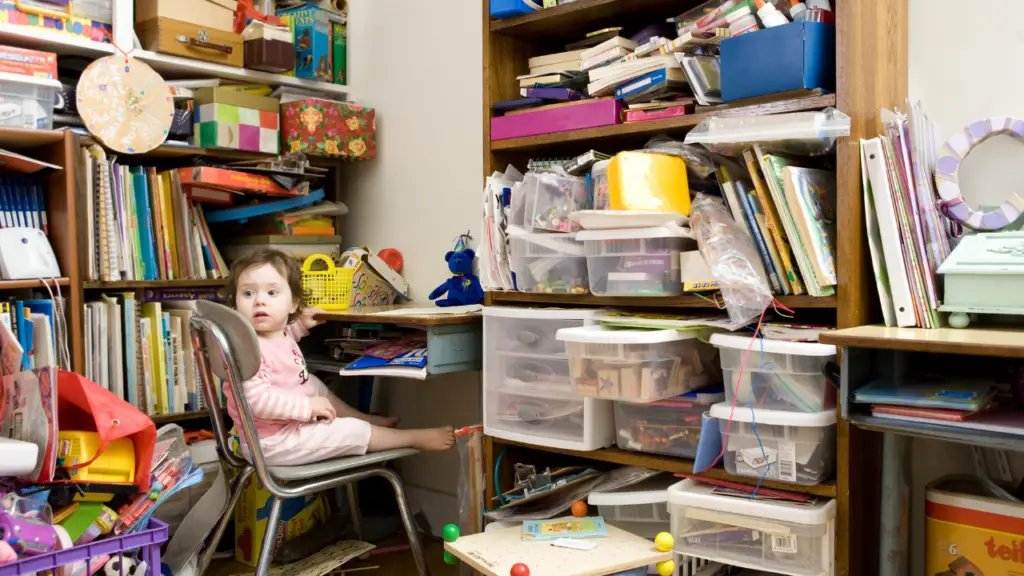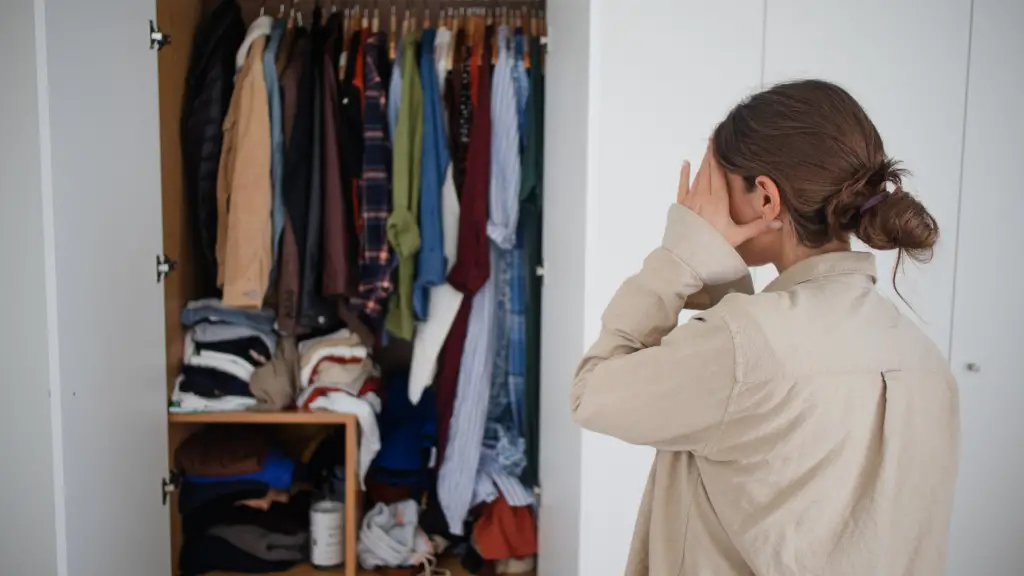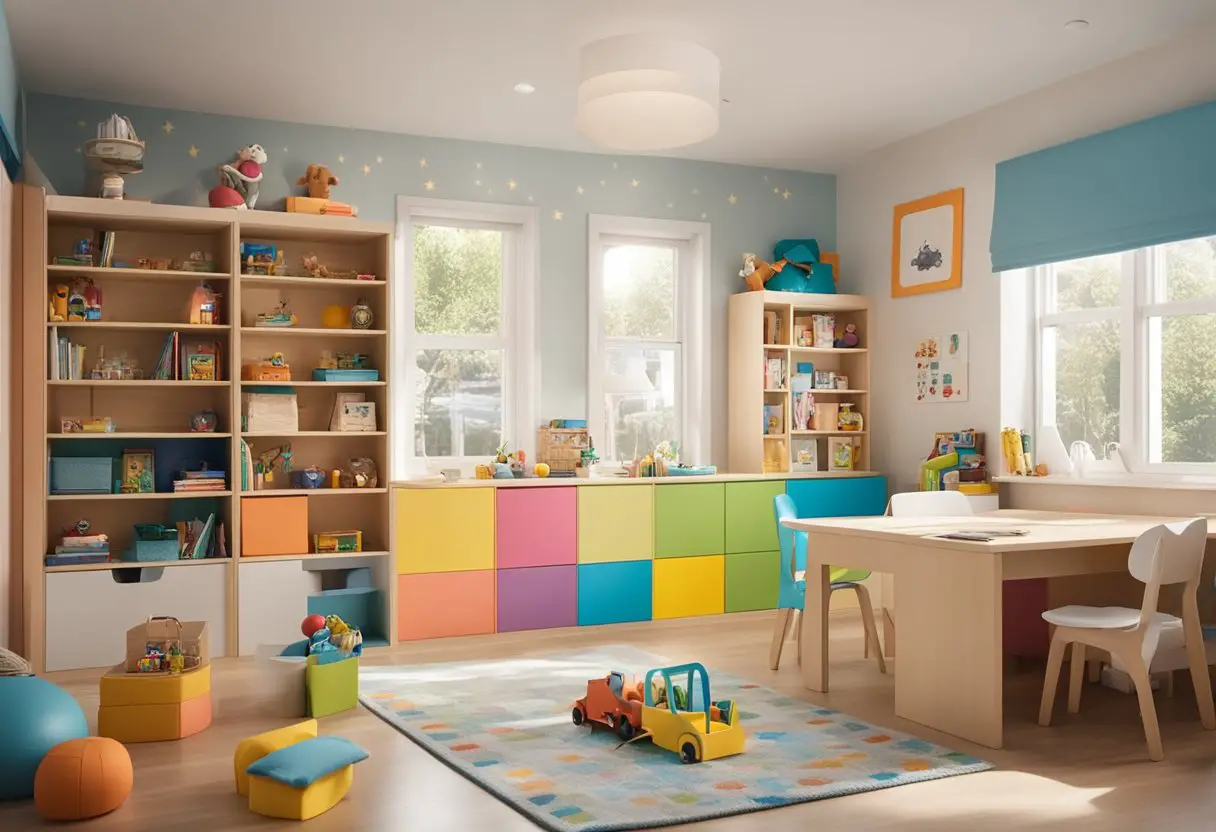None of us like clutter and mess but accomplishing this in your home is often easier said than done.
For the average person, stuff often just builds up over time. From gifts to the items, you purchase yourself, clutter is all too easy to get and sometimes challenging to get rid of.
That doesn’t mean you can’t enjoy a clutter-free home though. You can and should be able to enjoy a home that’s free of excess items without having to constantly be cleaning and picking up.
Many people ask, are there any easy wins to help keep down the clutter? The good news is that there are. With a few simple changes to your routine, you can enjoy a clutter-free lifestyle.
Keep in mind that all of these tips may not necessarily work for your space.
The size of your home and other factors may affect what you can do with the space. However, with these handy and comprehensive tips, you can find your space clutter-free and full of only the things that you love.

Table of Contents
Stop Clutter at the Door
It’s always easier to prevent a problem from happening than dealing with the results. This may not be a solution to deal with your current problem but it’s important to also set good habits to prevent problems in the future.
Once clutter comes into your space, it’s much hard to get it out. You can make it easier on yourself by always asking if your items really need to come into your space.
Try saying no to impulse purchases, free gifts, good deals on things that you don’t need, and anything else that doesn’t have a place in your space.
There are many different types of clutter so keep an eye out to ensure that you’re not bringing those items into your home.
This can not only help you have a cleaner space but also will often save you money in the long run.
Dos
- Establish a routine for decluttering and organizing your space regularly.
- Ask yourself if an item is truly necessary before bringing it into your home.
- Practice self-discipline and say no to impulse purchases.
- Consider the long-term value and usefulness of an item before accepting it as a free gift.
- Resist the temptation of buying things you don’t need, even if they are offered at a good deal.
- Save money by avoiding unnecessary purchases and maintaining a clutter-free space.
Don’ts
- Don’t procrastinate when it comes to decluttering. Address clutter issues promptly.
- Don’t accept free gifts that you don’t genuinely need or have a place for.
- Don’t waste money on unnecessary items that will contribute to clutter in the long run.
Sort Through Mail
It’s best to sort through your mail and packages on a daily basis or at least a few times a week. You can never stop getting mail entirely probably, but you can keep it from stacking up in your home.
To prevent papers from piling up, have a spot where you place your mail. To prevent them from piling up, deal with them at least every few days.
If you’re struggling to find a system that works for you, have a pile for bills that you clear out on a monthly basis and then discard or sort through the other mail and get rid of as an ongoing basis.
Make Monthly Donations
Most people gather up old items or things that they don’t need and donate or discard them. Although some items may not have any use, you can often get rid of items more easily when you know that someone else will enjoy using them.
As a way to keep yourself honest, have a box or shopping bag in a closet. Every time you come across an item that’s nice, but you don’t need, place it in the bag.
If you’re not sure that you can discard the item, keep it in the bag for a few weeks.
Once you have a bag or two full of items, take it to a local donation center and provide that for resale or another use. This can be done as often as you want.
Around a move or other major life change, you may find that you’re going more frequently. However, most people find that they end up with a full bag or two every month or every few months.
Buy Only What’s Needed
This is an area where we can save in both our space and also time. If you’re buying housewares, for example, buy them only for the people that you serve on a regular basis.
It’s fun to be able to have place settings for a set of 20 but how often do you host this number of people?
You can cut down on clutter when you shop for only the items that you’re using on a daily basis. If you frequently do find yourself needing a larger set of dinnerware, then you can get this.
However, take a critical look at the items in your kitchen and get rid of any items that you’re not using on a weekly basis.
This is also a principle that you can use to other areas of life as well. Think about your closet. How often do you wear some of the items?
Some specialty items such as a formal dress or suit you might not wear frequently but still need to keep. However, for most casual items such as shirts and pants, you should be wearing them at least a few times a year.
A general rule of thumb for clothing is that you shouldn’t keep them if you haven’t worn them in over a year.
When you sort through your clothes, use this question to decide what stays and goes.
Have a One In, One Out System

This system isn’t designed to get rid of excess items but to keep you from becoming overwhelmed with too many items at a time.
Chances are that you probably need a certain number of shirts, for example but that number can grow over time.
To keep your general possessions stable over time, you can keep the principle that every time you purchase a top, you also get rid of one.
This keeps your possessions to a manageable number and will also help you to get rid of items as they age so that you can make room for new, fresh ones.
This is a great principle to use for items that age and will become used and worn over time. Kitchenwares, clothing, and shoes are the general items where this principle applies.
However, even linens and towels can be a good area to apply this principle. If you’re not going to get rid of the equivalent item, ask yourself why and if you really need more than one of that items.
Allow a Clutter Zone
We probably all have the idea that every item has a place but what about the items that don’t?
You don’t have to banish every miscellaneous item from your home. However, if you confine those items to a small area, then you’ll probably keep them manageable and prevent too much stuff from building up.
For example, miscellaneous items such as chargers, batteries, and other small items can easily be kept in a junk drawer without taking too much space.
You should still go through this drawer periodically and discard items you likely won’t ever need.
However, we all occasional find ourselves needing a spare battery or similar small item so don’t feel as though you don’t have room for this in a clutter-free home.
Define Your Style
The style that you have in your home can go a long way to avoiding clutter. If you have too many items that don’t match in your home, it may look messy and cluttered even when it’s not.
Knowing what you like or having a vision for your home can help you to only purchase the items that will fit well in that space.
For example, if you have a living room that you have a defined color palate, then you can use that to decide what items to not place in that space.
Sometimes the difference between clutter and clean is simply being able to define what will work and won’t work in your home.
Have a general idea of your decorating style and then don’t allow anything into that space which won’t fit in that style.
Of course, that doesn’t mean that you can’t still update and refresh your home. You may find that it’s a good idea to update your throw pillows every few months.
A good option for your home when it comes to the decor is to use the one in, one out system here as well.
Once you have that principle along with your general decorating scheme ideas, your home will be neater and tidier on a regular basis.
Enjoy the Process
Although having a clutter-free home is a huge benefit, that doesn’t mean it doesn’t take some time as well.
Start on the process and give yourself time to go through this process. Most people who have a fairly busy schedule will take a few months at least to get on board.
These tips can help you to build and lead a clutter-free lifestyle though.
These simple solutions can be used to get started and you’ll find that it’s much easier to avoid clutter in the future.





